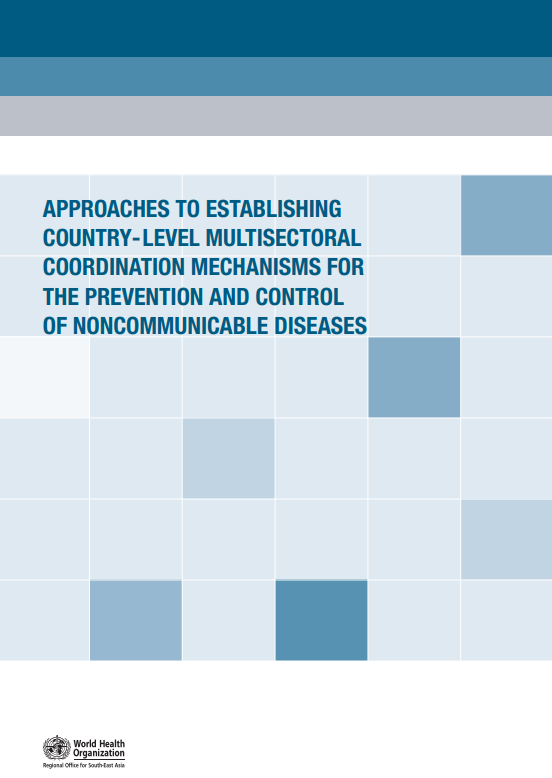Global Allergy & Airways Patient Platform
Bronchiectasis Educational Flyers
Guide
05 Feb 2026
WHO Regional Office for South-East Asia
12 Nov 2018

The determinants and implications of noncommunicable diseases (NCDs) are spread across diverse sectors within and outside the government. This calls for Member States to set up multisectoral coordination mechanisms (hereafter referred to as “the mechanisms”) that offer a synergistic response to these diseases and their risk factors. The analysis of experiences of countries in addressing various health and similar challenges brings to the fore five key elements that are integral to an effective multisectoral coordination mechanism for NCDs, and five strategies to improve the involvement of relevant sectors in such a mechanism. The 5x5 approach presented in this document can guide governments in their efforts to set up effective coordination mechanisms for NCDs at the national and subnational levels.
High-level political leadership that has the authority and resources, monitors progress and ensures adherence to international commitments is the most critical element of an effective multisectoral coordination mechanism for NCDs. Next, the mechanism requires a clear scope and mandate for all the participating sectors. A skilled and well-staffed secretariat is critical to providing the necessary operational support to the mechanism; equally important are sensitized focal persons in all relevant ministries. A costed, joint workplan and earmarked funds are required to ensure its seamless implementation. The mechanism also needs to develop a set of process and outcome indicators against which progress is regularly measured.
A package of five strategies would help mobilize the interest of diverse sectors in the coordination mechanism. The first step is to influence the setting of a political agenda, thereby ensuring high-level political support for action across sectors. Evidence needs to be generated to make the business case for NCDs and showcase the relevance of NCD interventions for the goals of partner ministries. Close monitoring of implementation through process indicators and periodic reporting to the supraministerial authority could also help in galvanizing momentum in the mechanism.
In addition to various ministries within the government, intergovernmental agencies, international development partners and civil society organizations can support the work of the mechanism through specific technical and financial inputs. Governments also need to explore and identify the best means to engage with the private sector in a transparent and accountable manner.